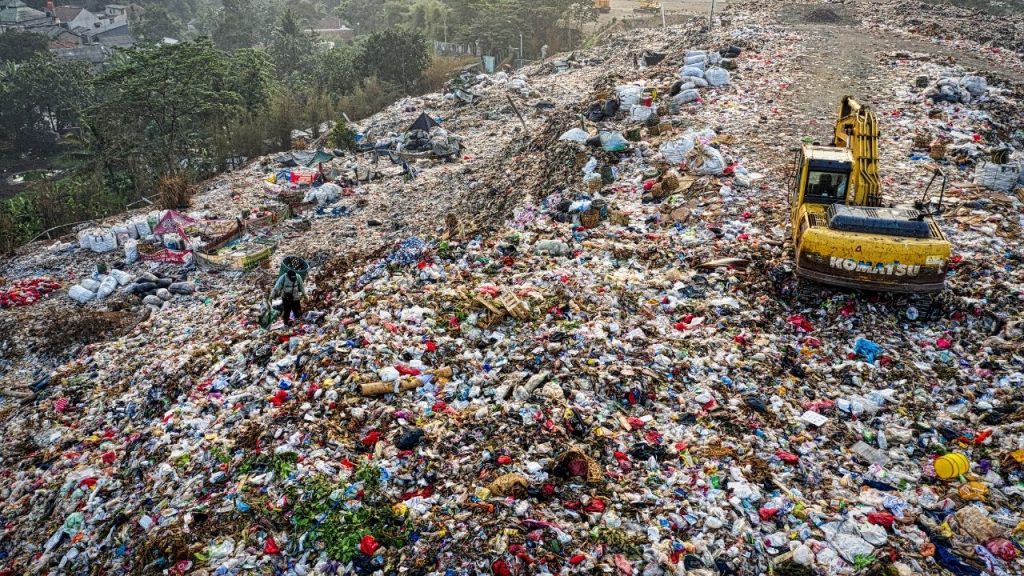Starting Own Manufacturing Business: Waste Treatment Technologies and Strategies

Waste treatment modern technologies have seen significant growths over the past couple of years, as the globe comes to grips with an enhancing waste generation problem. The change towards a circular economy and also the requirement for sustainable waste management practices has opened new chances for financial investments in making waste treatment modern technologies. This article analyzes the feasibility and techno-economic feasibility of buying this area, taking into consideration the market size, share, patterns, and future opportunities in waste treatment modern technologies.
Visit this Page for More Information: Start a Business in Waste Management and Recycling Sector
Section 1: Understanding the Feasibility and Techno-Economic Viability Study
1.1 Defining Feasibility and Techno-Economic Viability Study
Specifying Expediency and Techno-Economic Viability Research Study An usefulness as well as techno-economic viability research study is a vital process that reviews the technical and monetary elements of a job prior to execution. This research study supplies a comprehensive evaluation of the project’s demands, operational as well as logistical difficulties, as well as possible monetary returns. In the context of waste treatment technologies producing, the study assists capitalists figure out one of the most proper methods, devices, and also methods to take on, while additionally assessing the possible productivity and also risks connected with the investment.
1.2 Importance of Feasibility and Techno-Economic Viability Study
Performing a feasibility and techno-economic viability study is crucial for several reasons:
- Ensuring the technical feasibility of the proposed manufacturing process.
- Identifying potential risks and challenges that could affect the project’s success.
- Assessing the financial viability and profitability of the investment.
- Providing essential information for securing financing and attracting investors.
- Facilitating informed decision-making and effective project planning.
Section 2: Market Size, Share, and Trends in Waste Treatment Technologies
2.1 Market Size and Share
The global waste treatment technologies market has experienced significant growth in recent years, driven by increasing waste generation, stringent regulations, and growing public awareness about environmental issues. The market is expected to reach $XX billion by 20XX, with a compound annual growth rate (CAGR) of XX% during the forecast period.
Waste treatment technologies can be broadly categorized into three segments:
- Physical treatment: includes processes like screening, shredding, and sorting.
- Chemical treatment: involves techniques such as neutralization, oxidation, and reduction.
- Biological treatment: includes processes like composting, anaerobic digestion, and aerobic digestion.
The market share for these segments varies, with biological treatment technologies accounting for the largest share due to their ability to convert waste into valuable products such as biogas, compost, and fertilizers. Chemical and physical treatment technologies follow closely, driven by their application in various industries, including municipal, industrial, and hazardous waste management.
Related Feasibility Study Reports: Waste Management and Recycling, Industrial Waste Management, Agro Waste, Municipal Garbage, Plastic, Paper, Metal, Iron, Glass, Rubber, Electronic, Medical Waste Recycling, Solid Waste Treatment, Agricultural, Wood Waste, Residue Processing Projects
2.2 Market Trends
Some key trends shaping the waste treatment technologies market include:
- Circular economy: The concept of a circular economy emphasizes resource efficiency and waste reduction by promoting recycling, reusing, and repurposing materials. This trend has led to increased demand for waste treatment technologies that enable effective material recovery and conversion.
- Technological advancements: Innovative technologies, such as artificial intelligence (AI) and the Internet of Things (IoT), are being integrated into waste treatment processes to enhance efficiency, reduce costs, and minimize environmental impact.
- Regulatory drivers: Governments worldwide are implementing strict waste management regulations, which has accelerated the adoption of waste treatment technologies by industries to comply with these regulations.
- Public-private partnerships: The collaboration between public and private sectors is fostering the development and implementation of advanced waste treatment technologies and infrastructure.
Section 3: Future Opportunities in Waste Treatment Technologies Manufacturing
3.1 Advanced Waste-to-Energy Technologies
Waste-to-energy technologies are gaining traction as a sustainable solution to address the growing waste problem and generate renewable energy. Advanced technologies like gasification, pyrolysis, and plasma arc gasification offer higher energy recovery rates and lower emissions compared to conventional incineration methods. Investing in the manufacturing of advanced waste-to-energy technologies can yield significant returns due to their increasing adoption and potential to transform the waste management landscape.
Read our Books Here: Waste Management, Waste Disposal And Recycling Industry
3.2 Smart Waste Management Solutions
Smart Waste Management Solutions Smart waste management services, powered by innovations such as IoT, AI, and also Big Data, are reinventing the waste monitoring market. These remedies enable real-time tracking, anticipating analytics, and also data-driven decision-making to maximize waste collection, transport, and treatment processes. The production of clever waste monitoring modern technologies presents tremendous chances as districts as well as businesses look for to boost their waste monitoring techniques and lower prices.
3.3 Recycling and Material Recovery Technologies
Reusing and also Product Healing Technologies The expanding emphasis on resource performance and also waste decrease is driving the demand for recycling and product healing innovations. These modern technologies assist in the extraction and also repurposing of beneficial products from waste streams, such as steels, plastics, and paper, reducing the demand for virgin resources and also reducing waste disposal. Manufacturing innovative recycling and material recuperation modern technologies can use this expanding market and contribute to a more round economy.
3.4 Decentralized Waste Treatment Solutions
Decentralized Waste Treatment Solutions Decentralized waste therapy remedies, such as small-scale anaerobic digestion devices and modular reusing facilities, are obtaining appeal because of their capability to procedure waste at the resource, reducing transport costs as well as environmental impact. These remedies are specifically matched for remote or densely inhabited locations with minimal waste management facilities. Purchasing the production of decentralized waste treatment technologies can cater to the boosting demand for localized and lasting waste monitoring solutions.
Conclusion
The usefulness as well as techno-economic viability research study is crucial for understanding the capacity of investing in waste treatment innovations manufacturing. The global waste therapy innovations market is poised for substantial growth, driven by aspects such as the circular economic situation, technological improvements, regulative chauffeurs, and also public-private partnerships.
By purchasing advanced waste-to-energy modern technologies, smart waste management services, reusing as well as material recovery innovations, and also decentralized waste therapy solutions, investors can tap into the expanding market possibilities and contribute to lasting waste administration practices. Performing a thorough feasibility as well as techno-economic stability research is the initial step in the direction of making educated decisions as well as making best use of rois in this promising field.
Over the past several months, our team has been committed to creating a comprehensive and engaging piece of work that not only embodies our vision and passion but also serves as a resource that we believe will be invaluable to our readers.
The Complete Book on Waste Treatment Technologies (Industrial, Biomedical, Water, Electronic, Municipal, Household/ Kitchen, Farm Animal, Dairy, Poultry, Meat, Fish & Sea Food Industry Waste and Machinery Equipment Details) is an extension of our blog, delving deeper into the subjects we’ve only had the opportunity to briefly explore in our blog posts. It offers further insights, more nuanced discussions, and a plethora of concepts we’ve discussed. We’ve curated the content with great care and attention to detail to ensure that the book complements our existing resources, offering a richer, more detailed exploration of the topics at hand.
Reading this book is like embarking on a journey, one that will take you through landscapes of knowledge that we have meticulously designed and laid out for you. We’ve created it with you, our valued reader, in mind, and we believe it is time well spent for anyone who wants to learn more.
Thank you for being an integral part of our journey. Your thirst for knowledge is what fuels our passion for providing insightful, relevant content. Enjoy the journey of discovery that awaits in the pages of our new book.
To learn more about this business, you can get a copy of the NPCS handbook. A thorough guide to manufacturing and business success in sector.
Visit the page Select and Choose the Right Business Startup for You for sorting out the questions arising in your mind before starting any business and know which start-up you can plan.
We, at NPCS, endeavor to make business selection a simple and convenient step for any entrepreneur/startup. Our expert team, by capitalizing on its dexterity and decade’s long experience in the field, has created a list of profitable ventures for entrepreneurs who wish to diversify or venture. The list so mentioned is updated regularly to give you a regular dose of new emerging opportunities.
Click here to send your queries/Contact Us
Purchasing a detailed NPCS (Niir Project Consultancy Services) report can provide several benefits, particularly for businesses and individuals looking to invest in new ventures or understand industry trends. Here are some reasons why one might consider buying an NPCS report:
- Detailed Market Analysis: NPCS reports provide in-depth analyses of various markets, including understanding market size, growth rates, demand and supply trends, and key players.
- Feasibility Studies: These reports often include feasibility studies for various projects, giving potential investors an understanding of the project’s viability, expected returns, and risks involved.
- Industry Trends and Forecasts: NPCS reports help investors understand the latest trends in specific industries and future forecasts, helping in strategic decision making.
- Technological Insights: These reports can provide valuable information about the latest technological advancements and how they are impacting specific sectors.
- Regulatory Framework: Understanding the regulatory landscape of an industry or market is crucial for business planning. NPCS reports provide detailed information on the regulatory environment and potential changes.
- Competitive Landscape: NPCS reports also offer insights into the competitive environment of an industry, outlining major competitors, their market shares, and their strategies.
- SWOT Analysis: These reports often include SWOT analyses (Strengths, Weaknesses, Opportunities, Threats) of the industries they cover, providing a balanced view of the pros and cons of investing in those sectors.
- Investment Guidance: For businesses and individuals looking to invest in new ventures, NPCS reports can provide a thorough understanding of the industry, helping them make informed investment decisions.
- Business Planning: Whether starting a new business or expanding an existing one, NPCS reports can be beneficial in business planning by providing comprehensive industry and market information.
- Tailored Information: NPCS reports can be customized according to specific needs, ensuring that businesses get the most relevant and useful information for their unique situation.
In conclusion, an NPCS report can be an invaluable tool in understanding an industry or market, aiding in decision-making, planning, and investment strategies.
See More Links:
- Start a Business in Asia
- Related Books
- Start a Business in Potential Countries for Doing Business
- Best Industry for Doing Business
- Business Ideas with Low, Medium & High Investment
- Looking for Most Demandable Business Ideas for Startups
- Startup Consulting Services
- Start a Business in Africa
- Related Projects
- Start a Business in India
- Related Market Research Reports
- Start a Business in Middle East
- Related Videos
- Read Our Blog Here
OF_20Art23



